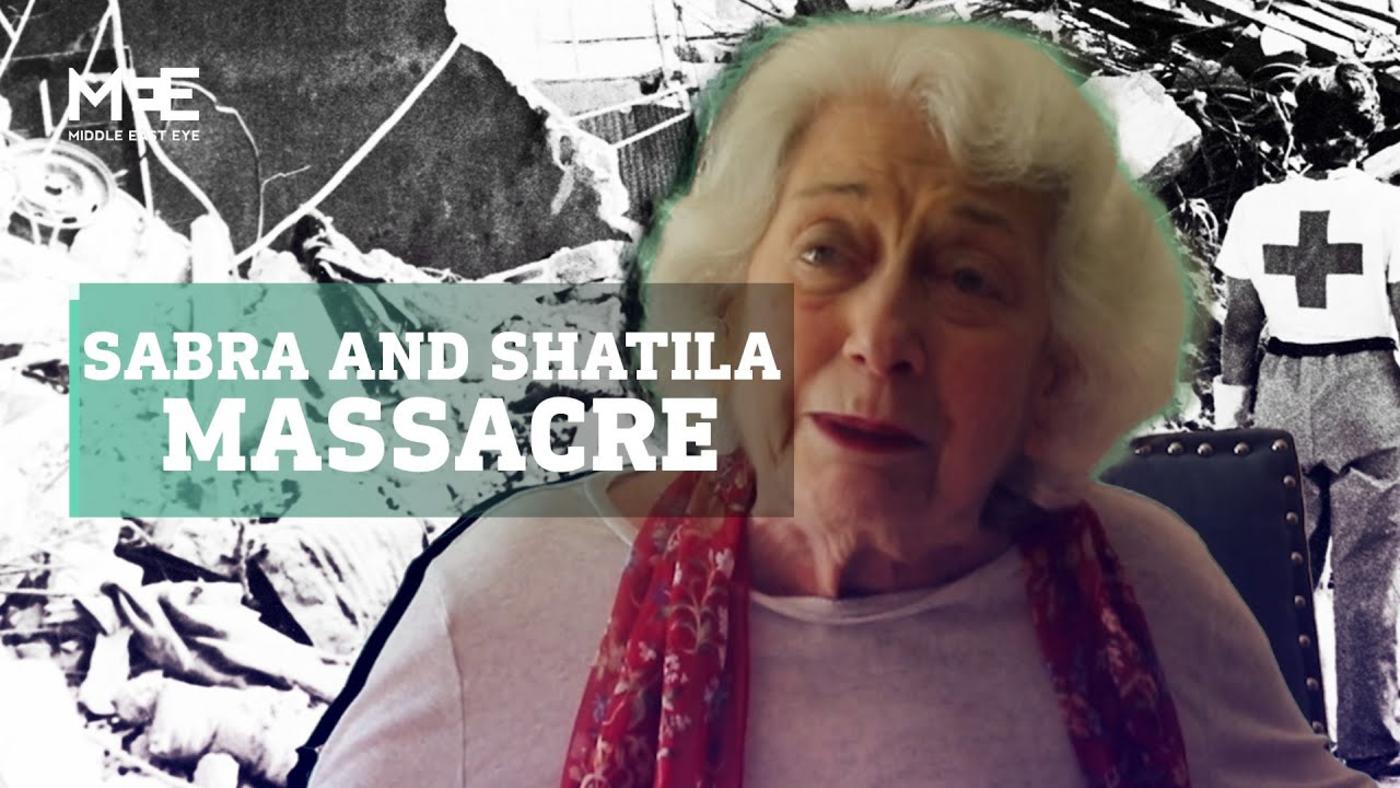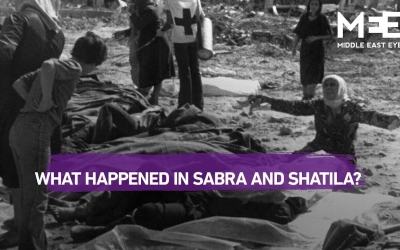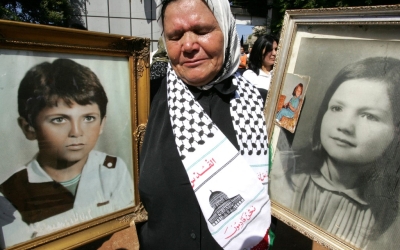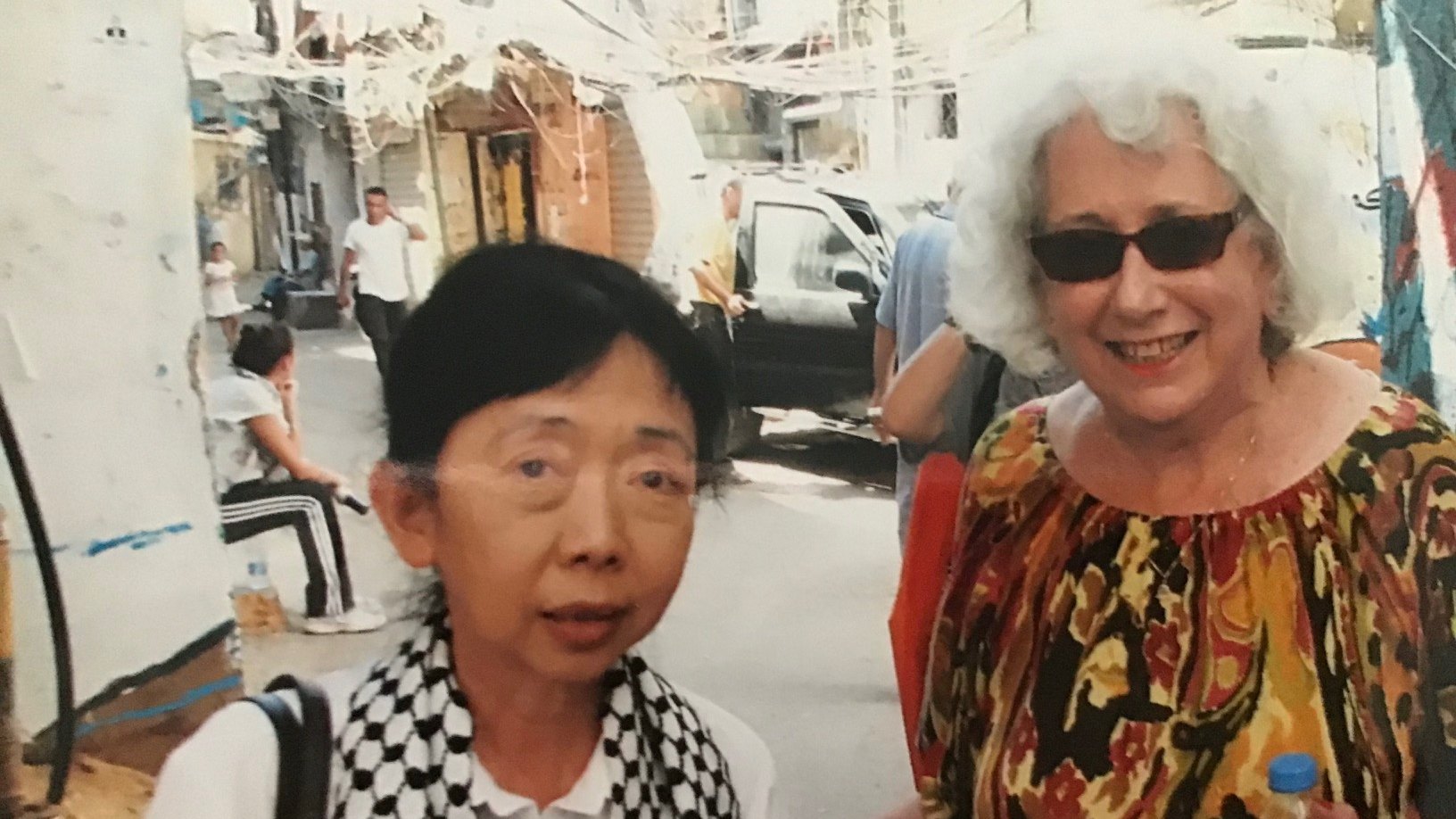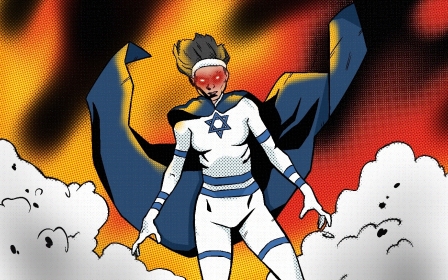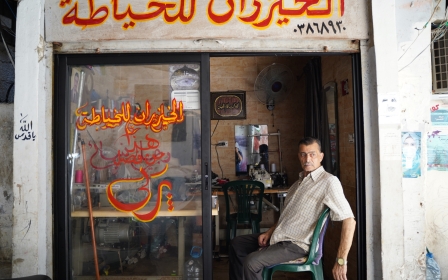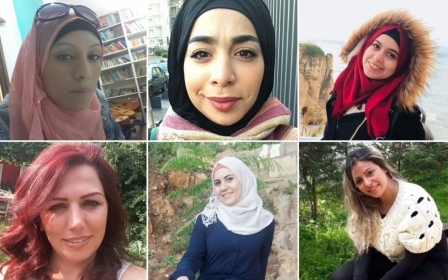Sabra and Shatila: Jewish nurse recounts horrors of Palestinian massacres
"There were beds on the streets because there were so many wounded. There were arms and legs, missing from people. There were young men that were blinded from the shrapnel from the bombings."
These are the words of Ellen Siegel, a Jewish American nurse who was treating victims at the site of the Sabra and Shatila massacres in September 1982.
Siegel began her nursing career in the 1960s, an era in US history almost synonymous with social change. The Black liberation movement, the outrage at the Vietnam War, and organising for women's rights had all helped shape Siegel's worldview, before her career took her to the Gaza Hospital, an 11-story medical centre that overlooked the Sabra and Shatila camps for Palestinian refugees in the west of Lebanon's capital, Beirut.
Siegel found herself in the middle of one of the worst massacres of Palestinians in history, when a right-wing Lebanese militia killed hundreds in the two adjoining refugee camps, as Israeli troops watched on.
'They started to massacre people, but in the most horrendous way with axes and knives'
- Ellen Siegel
On the 40th anniversary of the Sabra and Shatila massacre, Siegel recounted how she and other nurses struggled to take care of the hundreds of wounded Palestinians, how she herself was nearly executed, and how justice continues to remain elusive despite the magnitude of the atrocity.
New MEE newsletter: Jerusalem Dispatch
Sign up to get the latest insights and analysis on Israel-Palestine, alongside Turkey Unpacked and other MEE newsletters
"When I got to Beirut, I was shocked. It was one of the saddest scenes I had ever seen," Siegel told Middle East Eye, recalling the time from her home in Washington DC.
Israel launched an attack on Beirut on 15 September - breaking a weeks-long ceasefire that saw members of the Palestine Liberation Organisation leave the city - and sealed it off so no one else could leave.
Then on 16 September, the Phalange, a right-wing Christian Lebanese militia group, entered the Sabra and Shatila camps in response to the assassination of Lebanon's Christian president, Bachir Gemayel. They killed as many as 3,500 Palestinian and Lebanese civilians.
"The Phalange came in and started to kill people. They started to massacre people, but in the most horrendous way with axes and knives. Some of these pictures, some of these stories, are just horrendous," she said.
But Siegel says the Phalange wasn't operating in isolation.
"The Israelis shot flares into the air. One of the other physicians and myself, we went to the top floor of the hospital during this time, and we saw flares going up in the air and lighting up neighbourhoods of the camp followed by gunfire," Seigel said.
"What was happening is that [the flares] lit the way for the Phalange to go door to door and kill people."
Siegel and an international group of nurses worked tirelessly over the next several days to treat the wounded Palestinians.
The hospital had served as a sanctuary for those shot and wounded by militia forces, and even as it began to run out of supplies, blood, medicine and food, Palestinians continued to enter the hospital in the hope of escaping the violence.
"This went on for like two days and people started to flee towards the hospital, towards Gaza Hospital, looking for safety and security. The hospital got overwhelmed with people. The morgue got overcrowded."
Facing down death
Despite their attempts to stay at the hospital and continue to care for the wounded residents, Phalange forces took the international team of medics out of the hospital on 18 September and began marching them out of the camp at gunpoint.
On her way out of the camp, Siegel told MEE that she passed by dead bodies scattered across the streets, and mothers with their children being guarded by gunmen.
Being Jewish and growing up learning the horrors of the Holocaust, Seigel said her experience reminded her of the stories she heard of Jewish prisoners marching toward concentration camps and the gas chambers.
"As we got towards the end of the camp, they put us up against a bullet-ridden wall and they were about to shoot us," Siegel said.
"What happened was an Israeli stopped it. From the Israeli command post, [the Israeli] saw what the Phalange were doing and said ‘we can't be killing white people, all these Norwegians and Swedish and Americans'."
Standing there along the wall and staring down the barrels of the guns, Siegel began to hum to the tune of Here Comes the Sun by the Beatles, one of her favourite songs.
At that moment, she believed that she was going to die, and something about that thought gave her comfort.
"I believed in what I was doing. I believe my being there was the right thing to do. That my taking care of these patients was the right thing to do. And if I had to die alongside the Palestinians, it was okay."
Justice remains absent
After working as a nurse in Beirut and witnessing the massacre, Siegel later moved to Washington DC, where in the 1980s she helped create the Washington Area Jews for an Israel Palestinian Peace (WAJIPP), a peace group that called for an end to the Israeli occupation and a freeze of Israeli settlements.
She also continued her work as a registered nurse and travelled to the Middle East to serve as a volunteer medic. In 1989, she opened the first psychiatric unit in the Palestine Red Crescent Hospital in Cairo.
But looking back on her time at Sabra and Shatila, it pains her that accountability has continued to be evasive as the world's memory of the tragedy slowly fades.
Soon after the massacre, Siegel went on to testify at the Kahan Commission, an Israeli inquiry opened in 1983 that looked into the events that took place at the Palestinian refugee camps. There, she spoke alongside two other healthcare workers about what they saw.
"I was always taught that you need to speak up. Jewish children were taught that if anything goes wrong, you need to speak out and speak up. That this Holocaust happened because people did not speak out," she said.
Siegel said that throughout her time in the refugee camps during the massacre, she had seen signs that Israel played a pivotal role in the events that unfolded between 16 and 18 September.
She had seen a bulldozer marked with Hebrew letters on the streets of the camp, digging mass graves. She said that there was ongoing walkie-talkie communication between the Lebanese militia and Israeli troops.
Yet, many of those who orchestrated the massacre never faced justice.
'Ariel Sharon did not stick a knife or an axe into a Palestinian body. But he allowed the massacre to continue'
- Ellen Siegel
Ariel Sharon, the leader of the Israeli army at the time, was dismissed from his post following the Kahan Commission, which found him personally responsible for the massacre.
But he later became prime minister in 2001. Lebanon granted immunity to all the parties in the Lebanese Civil War, a move that has been criticised by rights groups as an evasion of accountability.
And the US, whose 800-man military force was supposed to remain in Beirut until the end of that September as a part of a multinational peacekeeping force to protect civilians, left on 10 September - just days before the massacre.
"Adolf Eichmann, the Nazi war criminal, he did not drop the poison canisters into the gas chambers. [Israeli defence minister] Ariel Sharon did not stick a knife or an axe into a Palestinian body. But he allowed the massacre to continue," Siegel told MEE.
"I don't see a big difference between either one of them. They're both war criminals."
Middle East Eye delivers independent and unrivalled coverage and analysis of the Middle East, North Africa and beyond. To learn more about republishing this content and the associated fees, please fill out this form. More about MEE can be found here.


